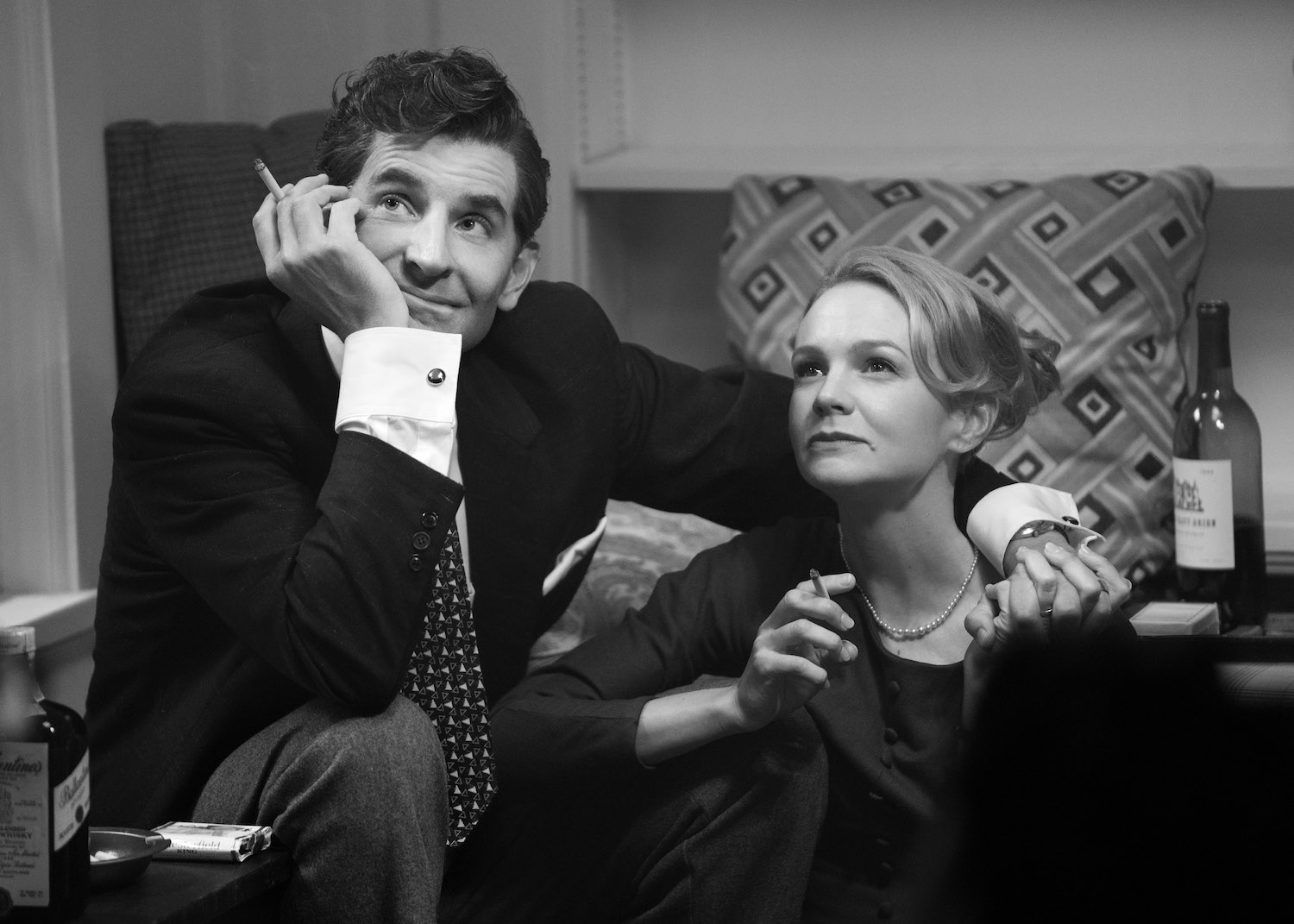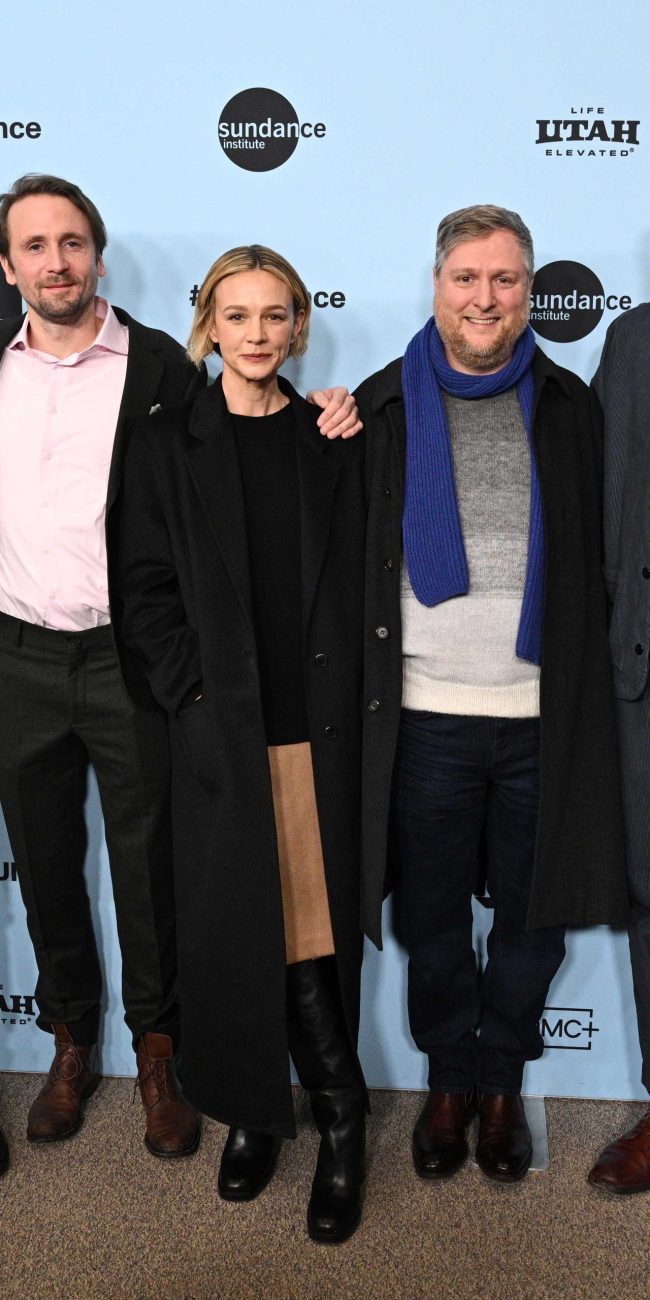MAESTRO

(Check out Chris Reed’s movie review of Maestro. The film is in theaters now as well as on Netflix. Seen it? Join the conversation with HtN on our Letterboxd Page.)
The great American conductor and composer Leonard Bernstein (1918-1990) left behind a legacy of stirring works—among them the musicals On the Town and West Side Story, the score to On the Waterfront, and the three-movement choral piece Chichester Psalms—and brilliant concerts. He also hosted a weekly television show, starting in 1960, entitled Young Person’s Guide to the Orchestra, which helped educate school children about classical music. He was a showman to the core, as well as a very talented artist.
A few years ago, Douglas Tirola gave us a documentary, Bernstein’s Wall, about the man. Now comes a dramatized biopic, Maestro, courtesy of actor/writer/director Bradley Cooper (A Star Is Born). It’s as ambitious as Bernstein himself, filled with magnificent flourishes and deep wells of emotion.
Cooper plays Bernstein, and the initial controversy over his prosthetic nose notwithstanding, he gives the movie its energetic drive. He is not alone. Joining him, as Bernstein’s wife, Felicia Montealegre, is Carey Mulligan (Promising Young Woman). She gives the story heart.
Even though we see, in an early scene, that Bernstein is gay (or at least bisexual), when the rising star meets his future spouse, we follow their cute love affair as one might in a romantic comedy. Despite the title’s focus on Bernstein’s outsize position in the world at large, fame striking him young and then remaining until the end, the movie trains its lens on Mulligan’s Felicia, the wages of living an unfulfilled existence taking their toll.
For the two of them have an arrangement, whereby she accepts his male lovers as long as he exercises some form of discretion. But Leonard Bernstein was, sexuality aside, a flamboyantly celebratory personality, adoring the limelight, which his genius had amply earned. Unfortunately, good as he was in promoting the wonders of music in the public sphere, privately he appears to have fallen short.
Back to the title: the word “maestro” confers the status of expert or master upon its possessor. Whatever one’s intentions, it cannot be hard to lose perspective if the world constantly reminds you of your eminence. This would also encourage one to lead a double life, to protect that which might be taken away. And throughout Bernstein’s time on Earth, being openly gay would no doubt have toppled him.
Cooper has more on his mind than the dissection of the marriage, however important that may be. He clearly wants to celebrate Bernstein’s achievement, giving us magnificent scenes of orchestral glory in which he, as an actor, commits fully to the facsimile of conducting. We the audience thereby experience a thrill akin to what it must have been like to watch Bernstein in the flesh.
He also presents the arc of his subject’s life, starting with the lucky break in 1943 when the illness of the New York Philharmonic’s guest conductor gave Bernstein his stunning debut at Carnegie Hall, from which all later triumphs flowed. He was already the youngest ever, and first American, assistant conductor of that orchestra, but the fact that he was Jewish seemed to limit his opportunities. Not, as it turned out, so.
And then there was Felicia, an actress whose own career would be sidetracked by the role of housewife and mother to their three children, but who would stand by her husband through thick and thin. Well, mostly. There are some things that even devoted partners can’t accept.
Cooper and his cinematographer, Matthew Libatique (Don’t Worry Darling), shooting on film, work with black-and-white imagery for the initial decades, then switch to color for later scenes, also moving into widescreen aspect ratios as time passes. Editor Michelle Tesoro (Netflix’s The Queen’s Gambit series) cuts the footage together in a manner befitting its beauty, further amplified by the excellent work of production designer Kevin Thompson (Ad Astra) and his team. The many terrific supporting performances complete the fine filmmaking.
Despite these superlative qualities, what it all comes down to is the relationship between Bernstein and Felicia. Cooper and Mulligan hold our attention throughout. The maestro may suck all the oxygen out of every room he’s in, but thanks to Felicia, we can all still breathe.
– Christopher Llewellyn Reed (@ChrisReedFilm)
Netflix; Bradley Cooper; Maestro movie review












Barbara Blum
Just watched the magnificent movie Maestro. My husband and I both agreed we hadn’t seen such a wonderfully done movie like this for a very long time. Bradley Cooper keeps getting better each time he takes the role. I’ve watched Carey Mulligan be overlooked for an Oscar before, hope this performance nails it for her! Lots of Oscar nominations coming for this one!
Casey
Mr. Reed- I would say that you also are a maestro of your craft of critical thinking journalism. This piece is gorgeous writing, highly professional but deeply, warmly human at the same time. It made my day and inspires me to definitely see this movie. Longtime fan of Bernstein, Cooper and Mulligan and I’ll add you to the faves list. Thanks for the great work!
Christopher Reed
Why, thank you, Casey (I’d address you formally, as well, but I only see your first name). I appreciate your kind words and am happy that my review has inspired you to watch the film. I hope you enjoy it when you see it!